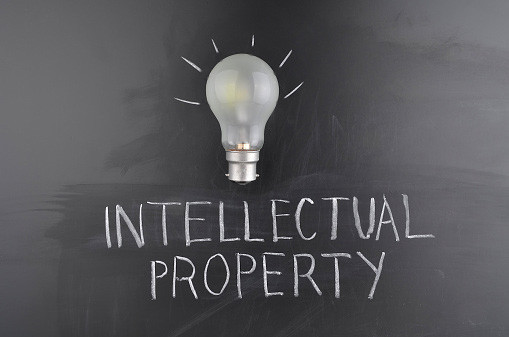
Mar 10•5 min read
Towards self-management - I. P. Registry

[Listen or read IN SPANISH]
We already know that the Internet of Value is on its way, and that soon there will be better opportunities available to us. Every new stage in the web with their newest apps has constantly been making us keep up-to-date, adapting ourselves. However, this time the change is even greater, because with the new De-centralized Apps 3.0 you will be able to take back fundamental rights. Furthermore, in the Internet of Value, the so-called “web 3”, you will be able to prove the Intellectual Property of your work, and thus manage your copyrights directly.
The Intellectual Property of your work, with all its copy rights, are yours from the moment of its creation. The registry of your work does not provide you of any right, since its only purpose is to prove that the work is by you, in case there is any doubt… That is why IP registry can still be useful if you plan to make a work public in the digital world uploading it.
So, you can still ask yourself: is it really worth it to registry my work?
In a private survey we had with professional artists from different fields of work, we realized that artists did not even consider registering what they were uploading on the web. The majority of them did not see the Internet as a business place, but rather something they used to promote themselves. The real business is outside the web, they told us… However, the majority of professional authors that work in the physical world register their creations either in the Intellectual Property Registry, or through management businesses. These registries protect the autor in case there might be different problems, because they can help them defend the authorship of their work, in case there might be any kind of abuse and it ends up in court. In the physical world, such cases can be managed with great efficiency, but is it the same in the web?
In the web, image copying, appropriation and plagiarism of music, and many other types of abuse have happened, and they still happen constantly, breaking all kinds of predictions and constantly eating up all of the resources of management entities. It is difficult to prevent, and to impose a penalty on these abuses is also practically impossible. All in all, it seems that nowadays registering any kind of Intellectual Property is of interest only to those who manage the associated copyrights, and that is mainly the management entities, who need to certify that registry in order to defend their associates.
However, what happens when you decide to self-manage any of your work?
How do you prove that your creation is actually and truly yours if someone decides to copy it? How are you going to sell your work if someone comes up and says its theirs, even if they have no proof of it? If you decide to start self-managing, registering can be really useful, especially with that which you upload online.
Therefore, in order to manage your own the rights you may need to prove your Intellectual Property, and thus learn about the registry possibilities that the web 3 offers – and which did not exist before – should be of great interest to you.
In order to understand these new concepts, we need to remember that, up until today, on the web we have not had a real way of identifying ourselves. And that in itself, makes it impossible for us to identify what was ours in an efficient way. In the web 2.0, we users are just a bunch of data (carefully collected by Google, Facebook… businesses that grant some sort of ‘passport’ to use other services, in exchange of our data). The upcoming Internet of Value, also called web3, is quite the opposite to that, since we will be able to identify ourselves (and our work, of course) by the means of Identifyers (Decentralized IDs) using advanced criptography. In this sense, the BigTech giants will not be necessary anymore as “middle-men” to use our new apps.
In other words, in the web 3.0 whenever you create a work of art – a book, a painting, a sculpture, a song, a video – which you have saved in your computer, you will be able to register it online on a blockchain registry. In that registry, there will be permanent proof of the registry time and creation; and furthermore, only you will have the original key that shows you are the owner, since you were the first person to register it.
Is it possible to register on your own your work’s property?
We have mentioned before the Intellectual Property Registry, which works in the physical world. There, you show your Identity Card, and you have to fill different forms, and so on and so forth… But, does something like that exist in the web for digital files?
The good news is that yes, it does. Blockchain technology has brought the possibility to register your work in a very simple way. There are a bunch of we-apps that give you this service in a very easy way. Following a series of simple steps, you can get your work registered in no time, receiving your identifier, “digital print”, and a registry certificate on the blockchain. I will give you links to a few good examples in the commentary section of this podcast episode.
In the next episode, we will see which are the main rights that authors need to manage, and how the new technology brought forward by the Internet of Value will help them since it brings new solutions for the management of your work.
Georgina Mauriño
Author and founder of Smartists on Stacks, building a user owned Internet.
